
Find Help
More Items From Ergsy search
-
Can Dengue fever be transmitted through blood transfusions?
Relevance: 100%
-

Can dengue fever be contracted in the UK?
Relevance: 58%
-
Can bacterial infections be transmitted through blood transfusion?
Relevance: 56%
-

Can syphilis be transmitted via blood transfusion?
Relevance: 56%
-
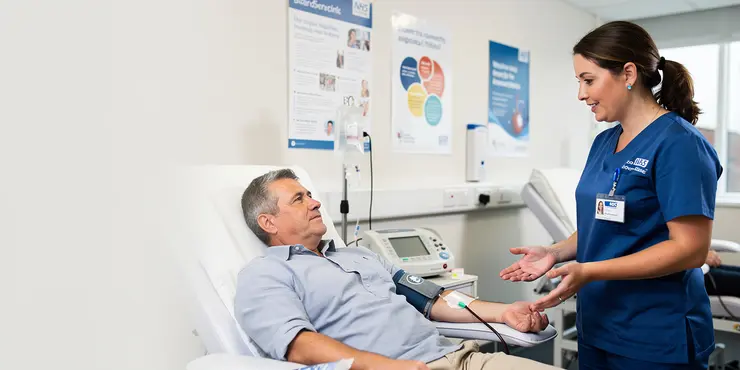
Are there any parasites that can be transmitted through blood transfusions?
Relevance: 55%
-
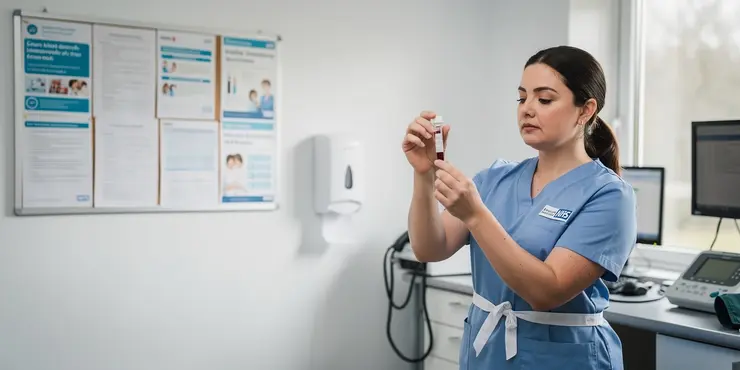
What is the most common disease transmitted by blood transfusion?
Relevance: 54%
-
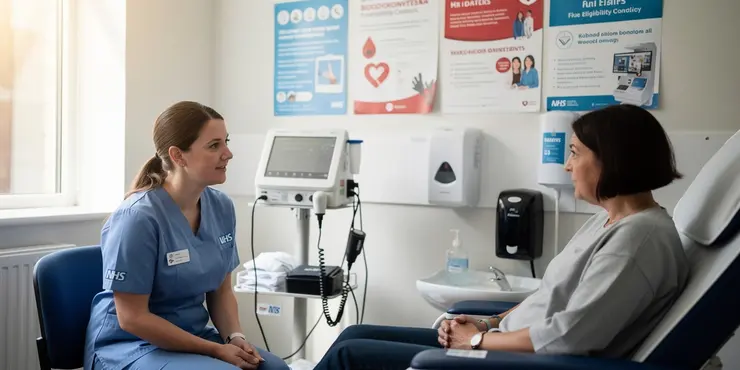
Can COVID-19 be transmitted through blood transfusions?
Relevance: 53%
-

What diseases can be spread by blood transfusions?
Relevance: 53%
-
Can HIV be transmitted through blood transfusions?
Relevance: 51%
-
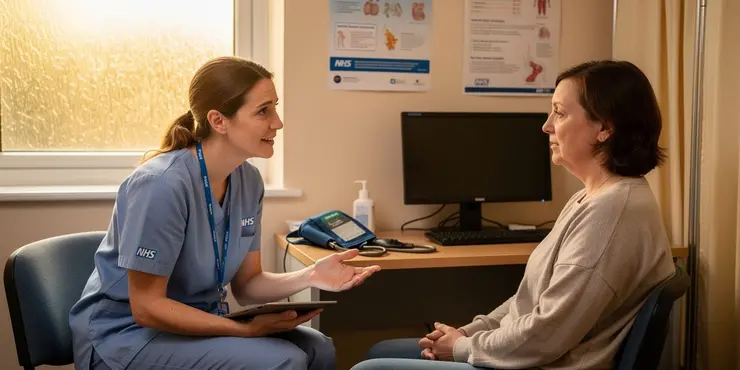
What is Dengue Fever?
Relevance: 48%
-

Are there risks associated with blood transfusions?
Relevance: 48%
-
Blood Product Transfusions
Relevance: 46%
-
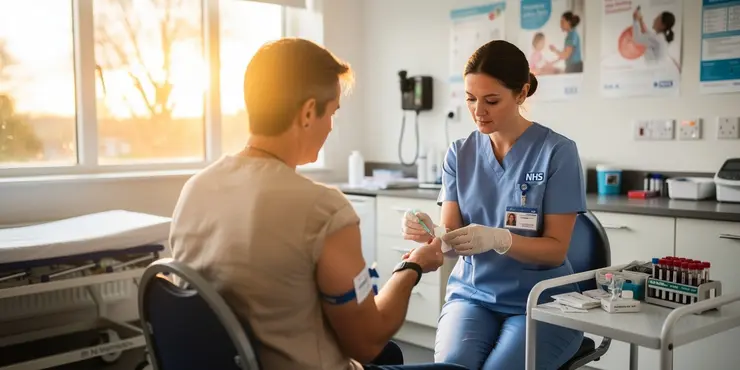
Is Chagas disease a concern with blood transfusions?
Relevance: 46%
-
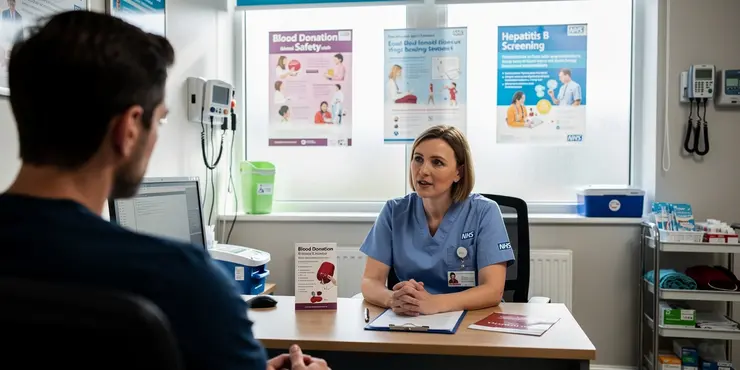
Is Hepatitis B a risk in blood transfusions?
Relevance: 46%
-

Is HTLV a risk in blood transfusions?
Relevance: 45%
-
Is Zika virus screened for in blood transfusions?
Relevance: 45%
-
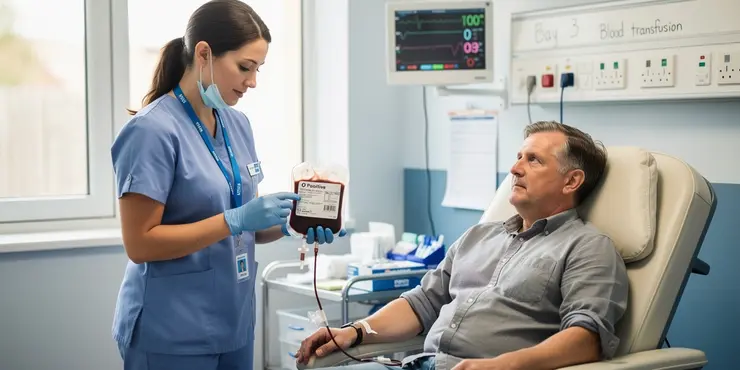
Blood Transfusion
Relevance: 44%
-
What is a blood transfusion?
Relevance: 44%
-
Is malaria still a concern for blood transfusion safety?
Relevance: 43%
-
Can you get any prion diseases from blood transfusion?
Relevance: 41%
-
Can someone have a reaction to a mismatched blood transfusion?
Relevance: 40%
-
Is there an age limit for receiving blood transfusions?
Relevance: 40%
-
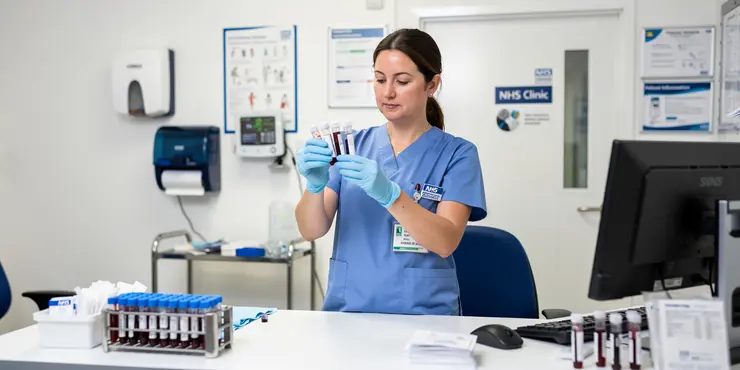
What other viruses are tested for in blood donations?
Relevance: 40%
-
Why might someone need a blood transfusion?
Relevance: 39%
-
How long does a blood transfusion take?
Relevance: 38%
-
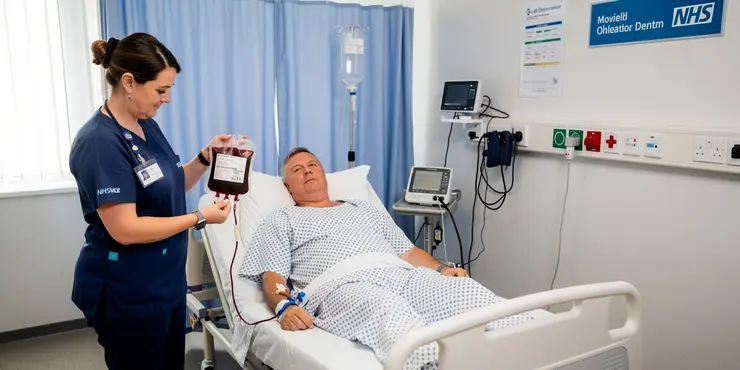
What types of blood products can be transfused?
Relevance: 38%
-
What are some common reasons blood transfusions are needed?
Relevance: 37%
-
Can certain medical conditions prevent receiving blood transfusions?
Relevance: 37%
-
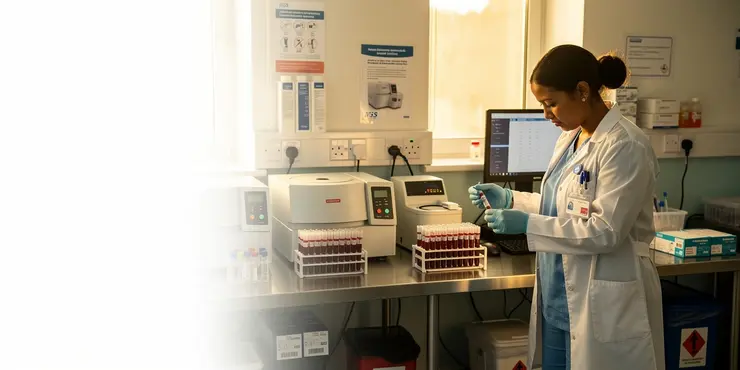
How do healthcare providers match blood for transfusions?
Relevance: 37%
-
Can people of any blood type receive a transfusion of any blood type?
Relevance: 36%
-
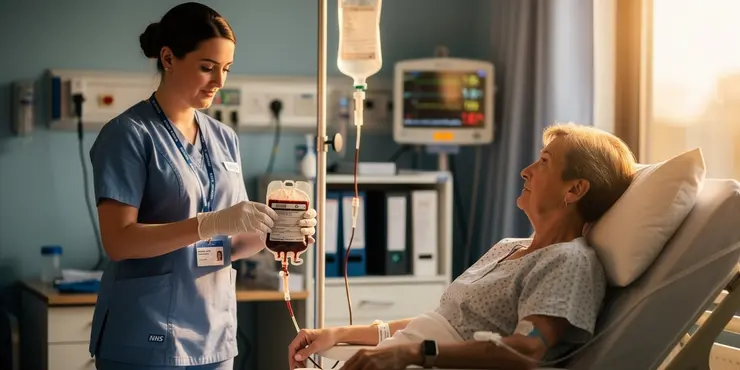
Can cytomegalovirus (CMV) be spread through transfusions?
Relevance: 36%
-

How do doctors determine how much blood is needed for a transfusion?
Relevance: 35%
-
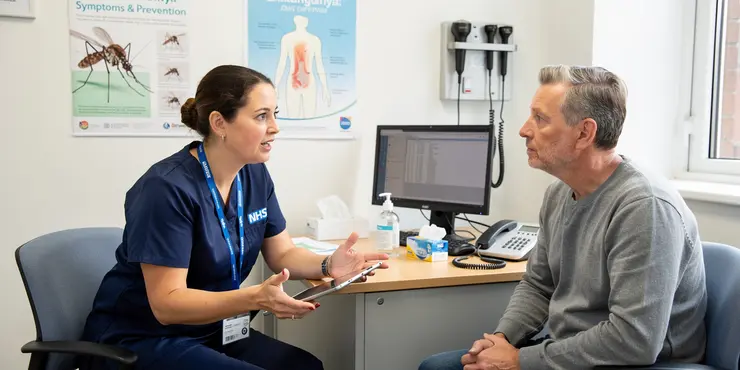
Can Chikungunya be transmitted from person to person?
Relevance: 35%
-

What measures are taken to prevent disease transmission in blood transfusions?
Relevance: 35%
-

How is HIV transmitted?
Relevance: 33%
-
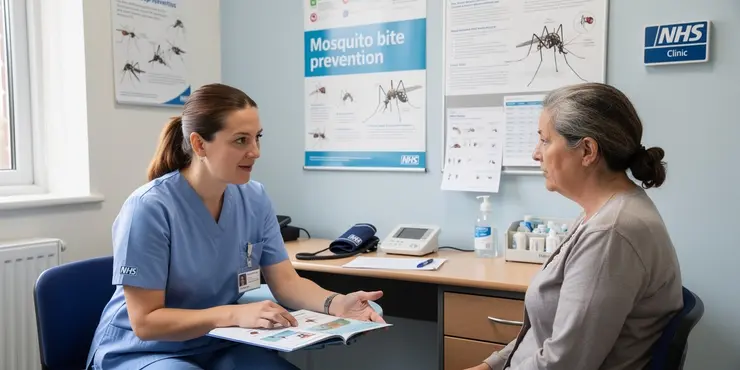
How is Chikungunya virus transmitted?
Relevance: 32%
-
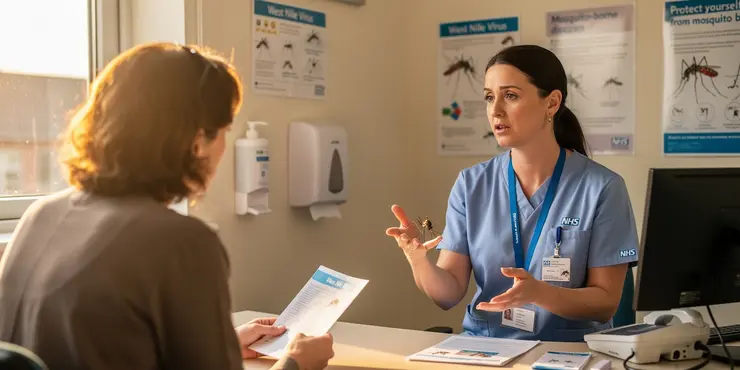
How is West Nile Virus transmitted?
Relevance: 32%
-

How is the Zika virus transmitted?
Relevance: 32%
-
Is blood used for transfusions safe?
Relevance: 31%
-
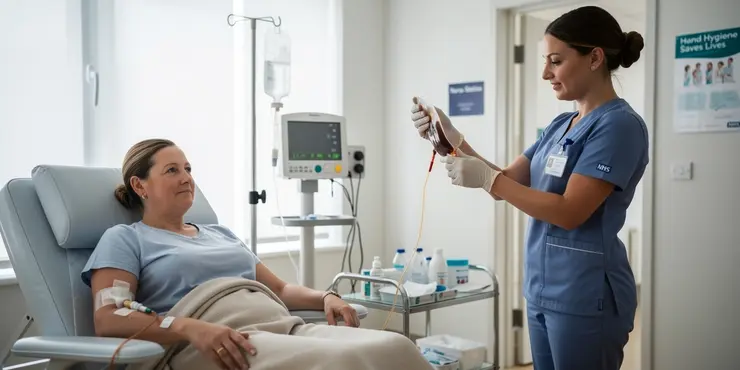
What is plasma, and why might it be transfused?
Relevance: 30%
Introduction to Dengue Fever
Dengue fever is a mosquito-borne viral infection that is prevalent in tropical and subtropical regions around the world. It is caused by the dengue virus, which is transmitted to humans primarily through the bites of infected Aedes mosquitoes. The disease is a significant public health concern in many countries, leading to outbreaks that can result in severe illness and even death.
Dengue Virus and Blood Transfusion
While the primary mode of transmission for the dengue virus is through mosquito bites, there is a potential for the virus to be transmitted through blood transfusions. This can occur if a donor is infected with the dengue virus, usually in the early stages of the infection, and donates blood before displaying symptoms or being diagnosed with dengue fever.
Risks of Transmission Through Blood Transfusion
The risk of dengue transmission through blood transfusion is relatively low, but it is a concern, especially in regions where dengue is endemic. Blood from an infected donor can contain the virus and potentially be transmitted to a recipient. This risk is particularly relevant during outbreaks when many individuals may unknowingly be carriers of the virus.
Screening and Preventive Measures
To reduce the risk of transmission through blood transfusions, blood banks and health authorities in countries where dengue is prevalent have implemented various screening measures. These measures may include deferral of blood donations from individuals who have recently been in areas with high dengue activity and enhanced donor questionnaires to identify symptomatic potential donors.
In addition, some countries employ nucleic acid testing (NAT) to detect the presence of the dengue virus in donated blood. This method can help identify and exclude infected donations, thereby reducing the likelihood of transmission through transfusion.
UK Context and Considerations
In the UK, where dengue is not endemic, the risk of dengue transmission through blood transfusion is minimal. However, UK blood services remain vigilant to emerging infections and have protocols in place to adapt to such threats. Travelers returning from dengue-affected areas may be deferred from blood donation for a period to ensure they are not asymptomatic carriers of the virus.
Public health initiatives focus on increasing awareness of the risks associated with dengue and other transfusion-transmissible infections. By implementing robust screening and donor selection processes, the UK aims to maintain the safety of its blood supply.
Conclusion
Dengue fever can be transmitted through blood transfusions, but the implementation of preventive measures significantly reduces this risk. Ongoing research and enhancements in screening technologies continue to improve the safety of blood transfusions in areas affected by dengue as well as globally. Awareness and adherence to safety protocols are essential to prevent transmission and ensure the well-being of patients receiving blood transfusions.
What is Dengue Fever?
Dengue fever is an illness you can get from mosquito bites. These mosquitoes are common in hot and humid places around the world. The illness is caused by a virus. Dengue can make people very sick, and in some cases, it can even cause death.
Dengue Virus and Blood Donations
Most people get dengue from mosquito bites, but it can also spread through blood transfusions. This happens if someone with dengue donates blood before they know they are sick. They might not show any signs of the illness yet.
Can Dengue Spread Through Blood Donations?
While it's not common, dengue can spread through blood donations. This is more of a worry in places where dengue happens a lot. If a person with dengue donates blood, the virus can get passed to another person receiving that blood. There is extra care needed during outbreaks because many people could have the virus without knowing it.
Steps to Keep Blood Safe
To make sure blood is safe, places where dengue happens often have extra checks on blood donations. People who have been to areas with lots of dengue might have to wait to donate blood. Blood banks may ask more questions to make sure donors are not sick.
Some places have special tests to find dengue virus in blood donations. If the virus is found, the blood is not used. This helps keep people safe from getting dengue through blood transfusions.
How Dengue is Handled in the UK
In the UK, dengue does not happen often, so the risk is low. But UK blood services stay alert to new health threats and have rules to keep blood safe. People coming back from places with lots of dengue might have to wait before they donate blood to make sure they do not have the virus.
The UK focuses on teaching people about dengue and how it can spread through blood donations. They make sure to ask the right questions and test if needed, so the blood supply remains safe.
Summary
Dengue can sometimes spread through blood donations, but there are many checks in place to stop this. New tests and careful rules help keep blood safe. It's important for everyone to be aware and follow safety rules to make sure people getting blood are safe and healthy.
If you find it difficult to understand, using tools like text-to-speech can help. Also, breaking down information and asking someone for help can make learning easier.
Frequently Asked Questions
Can dengue fever be transmitted through blood transfusions?
Yes, dengue fever can be transmitted through blood transfusions if the donor is infected with the dengue virus.
How does dengue transmission occur through blood transfusions?
Transmission occurs when blood from an infected individual is transfused into a recipient, potentially spreading the dengue virus.
What are the risks of contracting dengue from a blood transfusion?
The risk depends on the prevalence of dengue in the blood donor population and the effectiveness of screening measures.
Are blood banks required to screen for dengue virus?
Screening requirements vary by country and region, but many blood banks in endemic areas test for the dengue virus to reduce transmission risk.
What measures are taken to prevent dengue transmission through blood transfusions?
Measures include donor deferral, screening tests for dengue, and restricting donations from areas with dengue outbreaks.
Can asymptomatic individuals transmit dengue through blood donation?
Yes, people can transmit dengue through blood donation even if they do not show symptoms, during the viremic phase.
What is the viremic phase in dengue infection?
The viremic phase is the period when the dengue virus is present in the bloodstream, allowing potential transmission to others.
Is there a specific test for detecting dengue in donated blood?
Yes, nucleic acid testing (NAT) is used to detect the dengue virus RNA in donated blood.
How effective are current screening methods in preventing dengue transmission through transfusions?
Current screening methods are effective but not foolproof, as some infections may be missed if testing is not comprehensive.
What should a blood transfusion recipient do if they are concerned about dengue?
Recipients should discuss concerns with their healthcare provider and report any symptoms of dengue after a transfusion.
What symptoms might indicate dengue infection after a blood transfusion?
Symptoms include high fever, severe headache, pain behind the eyes, joint pain, and rash.
How long after exposure do dengue symptoms typically appear?
Symptoms usually appear four to ten days after being bitten by an infected mosquito or receiving infected blood.
Can dengue be transmitted by other means besides blood transfusion?
Yes, dengue is primarily transmitted by Aedes mosquitoes, but can also be transmitted through organ transplants and vertically from mother to child.
Is dengue transmission through blood transfusion a common occurrence?
While it is possible, it is relatively rare compared to mosquito-borne transmission, due to screening practices.
What areas of the world have higher risks of dengue transmission through transfusions?
Areas with high dengue endemicity, like Southeast Asia, Latin America, and the Caribbean, have higher risks.
Can dengue be transmitted if the donated blood is processed or treated?
Some treatments like pathogen reduction technologies can reduce risk, but not all blood processing methods eliminate dengue.
Should donors in dengue-affected areas refrain from donating blood?
Donors with symptoms or known exposure should refrain from donating until it is safe, as per guidelines from health authorities.
What should blood donors do if they develop symptoms after donating?
They should contact the blood donation center so that potentially affected blood can be traced and managed appropriately.
Have there been documented cases of dengue transmission through blood transfusion?
Yes, although rare, there have been documented cases indicating the potential risk of transmission through transfusion.
Can individuals get tested for dengue before donating blood?
While not always mandatory, donors in some regions may be tested as part of the screening process depending on protocols.
Can you get dengue fever from a blood transfusion?
Dengue fever is a sickness you get from a mosquito bite. But can you get it from a blood transfusion too? Let's find out if that can happen.
Helpful Tips:
- If you are not sure about something, ask a doctor or nurse.
- Use pictures or videos to help understand how dengue spreads.
Yes, you can get dengue fever from blood transfusions if the blood donor has the dengue virus.
How can dengue spread through blood transfusions?
Dengue is an illness you get from a virus.
Sometimes, people need to get extra blood. This is called a blood transfusion.
When someone is sick with dengue and gives blood, the virus can go into the donated blood.
If another person gets this blood, they might get sick with dengue too.
Doctors check blood to keep it safe. But sometimes the virus is hard to find.
If you want to know more or have questions, you can ask a doctor or use online health helpers.
Dengue can spread when a person with the virus gives blood to someone else. The virus travels through the blood to the new person.
Can you get dengue from a blood transfusion?
Getting blood from another person is called a blood transfusion. There is a small chance you could get dengue from this.
Dengue is an illness spread by mosquitoes. Sometimes, a person with dengue might give blood. This can happen if they don't know they are sick.
Doctors check blood carefully. They try to make sure it is safe. This helps keep the chance of getting dengue low.
If you want to know more, you can ask a doctor or nurse. They can explain and help you feel safe.
The risk depends on how common dengue is among people who give blood and how good the checks to stop it are.
Do blood banks have to check for dengue virus?
Blood banks are places where blood is kept safe for people who need it. It is important for blood banks to make sure the blood does not have any germs or viruses that can make people sick.
Here’s a simple way to check:
- Blood banks need to test the blood to make sure it is safe.
- Testing helps to find out if the blood has dengue virus.
- Dengue virus can make people very sick if it is in the blood.
Support tools can help:
- Use picture cards to understand how blood is tested.
- Ask someone to explain if you have questions.
Different places have different rules for checking blood. But in places where dengue is common, blood centers often test for the dengue virus. This helps stop the virus from spreading.
How do we stop dengue from spreading in blood transfusions?
Here are some simple ways:
- Test the blood: Check the blood for dengue before using it.
- Use safe blood: Only use blood that is safe and clean.
- Help people know: Teach people how to keep the blood safe.
Tools to help:
- Reading tools: Use apps that read out loud.
- Picture aids: Use pictures to help understand the steps.
Steps we can take:
- Ask some people to wait before giving blood.
- Test the blood for dengue, which is a sickness.
- Stop taking blood from places where many people are sick with dengue.
Can people who look healthy spread dengue when they give blood?
Yes, people can spread dengue when they give blood, even if they do not feel sick. This can happen during a time called the viremic phase.
What is the viremic phase in dengue infection?
The viremic phase is a time when there is a lot of dengue virus in the blood. This happens after a person is bitten by a mosquito that has dengue.
Here is an easy way to understand it:
- The viremic phase is like when someone has lots of germs in their blood.
- During this time, a person can feel sick and spread the virus to new mosquitoes if bitten again.
For help with reading, you can:
- Ask someone to read it with you.
- Use a voice app to hear the words.
- Look at pictures that explain the virus stages.
The viremic phase is when the dengue virus is in the blood. This is when the virus can spread to other people.
Can we check if donated blood has dengue?
Doctors have a way to test blood. This helps to see if there is dengue in it. Tests keep us safe and healthy.
You can use pictures to help understand. Or ask someone to explain. It's okay to ask questions!
Yes, a special test called nucleic acid testing (or NAT) helps find the dengue virus in blood that people give.
How good are the tests we use now at stopping dengue from spreading through blood donations?
Today's tests work well, but they're not perfect. Sometimes infections are missed because not all tests are done.
What to Do if You Are Worried About Dengue After a Blood Transfusion
If you are worried about getting dengue from a blood transfusion, tell a doctor or nurse right away. They will help you.
You can also ask questions or tell someone if you feel unwell.
Using pictures or asking a friend to help you talk to the doctor can also be helpful.
After a blood transfusion, if you feel sick or have worries, talk to your doctor. Tell them if you have any signs of dengue fever.
What signs show dengue after getting new blood?
If you got new blood, watch for these signs of dengue:
- High fever (very hot body)
- Bad headache
- Pain behind the eyes
- Muscle and joint pain (body hurts)
- Feeling very tired
- Feeling sick or throwing up
- Skin rash (red spots)
If you see these signs, tell a doctor or grown-up right away.
Use a thermometer to check your fever. Write down any changes in how you feel. This helps the doctor understand what's happening.
You might feel really hot, get a bad headache, and have pain behind your eyes. Your joints could hurt, and you might get a rash on your skin.
When do you feel sick after getting dengue?
You might start to feel sick 4 to 10 days after a mosquito with germs bites you or if you get blood with germs in it.
Can dengue spread in other ways besides blood transfusions?
Dengue is a disease that comes from a virus. The virus can spread to people through mosquito bites. When a mosquito with dengue bites you, you can get sick.
People cannot give dengue to each other just by touching or being close. It needs a mosquito to carry it.
Doctors and helpers who take care of people should wear gloves to stay safe.
If you want to learn more, ask a doctor or use picture books about dengue. These can help you understand better.
Yes, dengue mostly spreads through mosquito bites. These mosquitoes are called Aedes. Sometimes, dengue can also spread through organ transplants and from a mother to her baby.
Can you get dengue from a blood transfusion?
Dengue is usually spread by mosquitoes. It is rare to get dengue from a blood transfusion. If you want to know more, ask a doctor or medical expert.
Here are some things that can help you understand:
- Use pictures or videos to learn about dengue.
- Ask someone to explain it to you in a simple way.
- Write down what you learn to remember better.
Yes, it can happen, but it doesn't happen often. Mosquitoes spread it more because people are checked first.
Where in the world is it more dangerous to get dengue from blood donations?
Some places have a lot of dengue. These places are at higher risk. They include parts of Southeast Asia, Latin America, and the Caribbean.
Can dengue spread if the donated blood is cleaned or treated?
Dengue is a sickness spread by mosquitoes. It can also spread through blood.
If blood is taken from a person with dengue and cleaned or treated, it is usually safe.
Doctors treat donated blood to kill germs. This makes the blood safe to use.
Helpful Tips:
- Use pictures or drawings to understand better.
- Ask someone to explain if you have questions.
Some treatments can make blood safer by killing germs, but not all of them can stop dengue completely.
Can people in places with dengue give blood?
If you live where there is dengue, can you still give blood? Let's find out together!
Dengue is a sickness from a mosquito bite. If you have dengue, it might not be safe to give blood to others.
If you feel sick or have a fever, tell the doctor or nurse. They will help you decide if you can give blood.
It's okay to ask questions! Doctors and nurses are there to help you and keep everyone safe.
Use a simple checklist or picture guide if you want to learn more. They can help you understand better.
If you feel sick or have been near someone who is sick, wait to donate. Follow advice from health experts to know when it is okay to donate.
What to do if you feel sick after giving blood?
They should call the blood donation center. This is to make sure the blood is safe and handled the right way.
Can dengue spread through blood donations?
Has someone ever caught dengue from getting a blood transfusion?
If needed, ask someone you trust to help you read this or use a text-to-speech tool.
Yes, it can happen. It is very rare, but people have gotten diseases from blood transfusions.
Can people check for dengue before giving blood?
You can ask your doctor to test you for dengue before you give blood.
It's important because dengue is a virus. You don’t want to pass it to someone else.
If you feel unwell, wait before you give blood.
You can use pictures to help understand and talk to someone who knows about it for more help.
In some places, people who give things (donors) might be tested. This is part of checking to make sure everything is safe. But, not everywhere does this.
Useful Links
This website offers general information and is not a substitute for professional advice.
Always seek guidance from qualified professionals.
If you have any medical concerns or need urgent help, contact a healthcare professional or emergency services immediately.
Some of this content was generated with AI assistance. We’ve done our best to keep it accurate, helpful, and human-friendly.
- Ergsy carfully checks the information in the videos we provide here.
- Videos shown by Youtube after a video has completed, have NOT been reviewed by ERGSY.
- To view, click the arrow in centre of video.
- Most of the videos you find here will have subtitles and/or closed captions available.
- You may need to turn these on, and choose your preferred language.
- Go to the video you'd like to watch.
- If closed captions (CC) are available, settings will be visible on the bottom right of the video player.
- To turn on Captions, click settings .
- To turn off Captions, click settings again.
More Items From Ergsy search
-
Can Dengue fever be transmitted through blood transfusions?
Relevance: 100%
-

Can dengue fever be contracted in the UK?
Relevance: 58%
-
Can bacterial infections be transmitted through blood transfusion?
Relevance: 56%
-

Can syphilis be transmitted via blood transfusion?
Relevance: 56%
-

Are there any parasites that can be transmitted through blood transfusions?
Relevance: 55%
-

What is the most common disease transmitted by blood transfusion?
Relevance: 54%
-

Can COVID-19 be transmitted through blood transfusions?
Relevance: 53%
-

What diseases can be spread by blood transfusions?
Relevance: 53%
-
Can HIV be transmitted through blood transfusions?
Relevance: 51%
-

What is Dengue Fever?
Relevance: 48%
-

Are there risks associated with blood transfusions?
Relevance: 48%
-
Blood Product Transfusions
Relevance: 46%
-

Is Chagas disease a concern with blood transfusions?
Relevance: 46%
-

Is Hepatitis B a risk in blood transfusions?
Relevance: 46%
-

Is HTLV a risk in blood transfusions?
Relevance: 45%
-
Is Zika virus screened for in blood transfusions?
Relevance: 45%
-

Blood Transfusion
Relevance: 44%
-
What is a blood transfusion?
Relevance: 44%
-
Is malaria still a concern for blood transfusion safety?
Relevance: 43%
-
Can you get any prion diseases from blood transfusion?
Relevance: 41%
-
Can someone have a reaction to a mismatched blood transfusion?
Relevance: 40%
-
Is there an age limit for receiving blood transfusions?
Relevance: 40%
-

What other viruses are tested for in blood donations?
Relevance: 40%
-
Why might someone need a blood transfusion?
Relevance: 39%
-
How long does a blood transfusion take?
Relevance: 38%
-

What types of blood products can be transfused?
Relevance: 38%
-
What are some common reasons blood transfusions are needed?
Relevance: 37%
-
Can certain medical conditions prevent receiving blood transfusions?
Relevance: 37%
-

How do healthcare providers match blood for transfusions?
Relevance: 37%
-
Can people of any blood type receive a transfusion of any blood type?
Relevance: 36%
-

Can cytomegalovirus (CMV) be spread through transfusions?
Relevance: 36%
-

How do doctors determine how much blood is needed for a transfusion?
Relevance: 35%
-

Can Chikungunya be transmitted from person to person?
Relevance: 35%
-

What measures are taken to prevent disease transmission in blood transfusions?
Relevance: 35%
-

How is HIV transmitted?
Relevance: 33%
-

How is Chikungunya virus transmitted?
Relevance: 32%
-

How is West Nile Virus transmitted?
Relevance: 32%
-

How is the Zika virus transmitted?
Relevance: 32%
-
Is blood used for transfusions safe?
Relevance: 31%
-

What is plasma, and why might it be transfused?
Relevance: 30%


